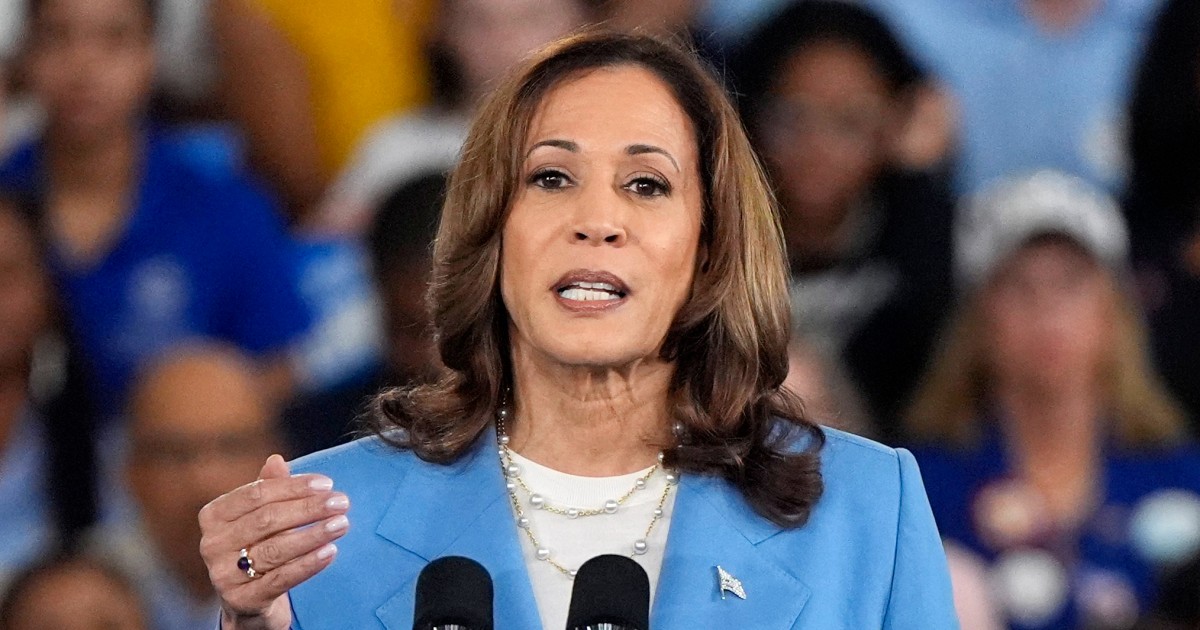- cross-posted to:
- housing_bubble_2
- housing_bubble_2
- politics
- cross-posted to:
- housing_bubble_2
- housing_bubble_2
- politics
The vice president is rolling out her first revenue-raising policy proposal as the Democratic presidential nominee and drawing a contrast with GOP opponent Donald Trump.
Vice President Kamala Harris is calling for raising the corporate tax rate to 28%, her first major proposal to raise revenues and finance expensive plans she wants to pursue as president.
Harris campaign spokesman James Singer told NBC News that she would push for a 28% corporate tax rate, calling it “a fiscally responsible way to put money back in the pockets of working people and ensure billionaires and big corporations pay their fair share.”
…
If enacted, the policy would raise hundreds of billions of dollars, as the nonpartisan Congressional Budget Office has projected that 1 percentage point increases in the corporate rate corresponds to about $100 billion over a decade. It would also roll back a big part of former President Donald Trump’s signature legislation in 2017 as president, which slashed the corporate tax rate from 35% to 21%.
Trump, meanwhile, recently said he would cut taxes even further if elected president, including on businesses.



Taxing profit rather than revenue might be one of the reasons companies look for unlimited growth. If they had reasonable growth or were steady, they’d need to pay more in taxes since they’d be profitable. Instead if they spend all their money on regrowing and growing and growing and paying executives.
Encouraging unlimited growth is fine as long as there is robust anti monopoly work. Companies trying to grow is how we get better innovations and efficiency. But letting them grow infinitely is literally cancer.
Encourage growth. It’s a good thing. But when a company gets too big, the government should hold a “yay, you won capitalism!” party, purchase every share of stock, give every worker a big bonus, and then break that company apart.